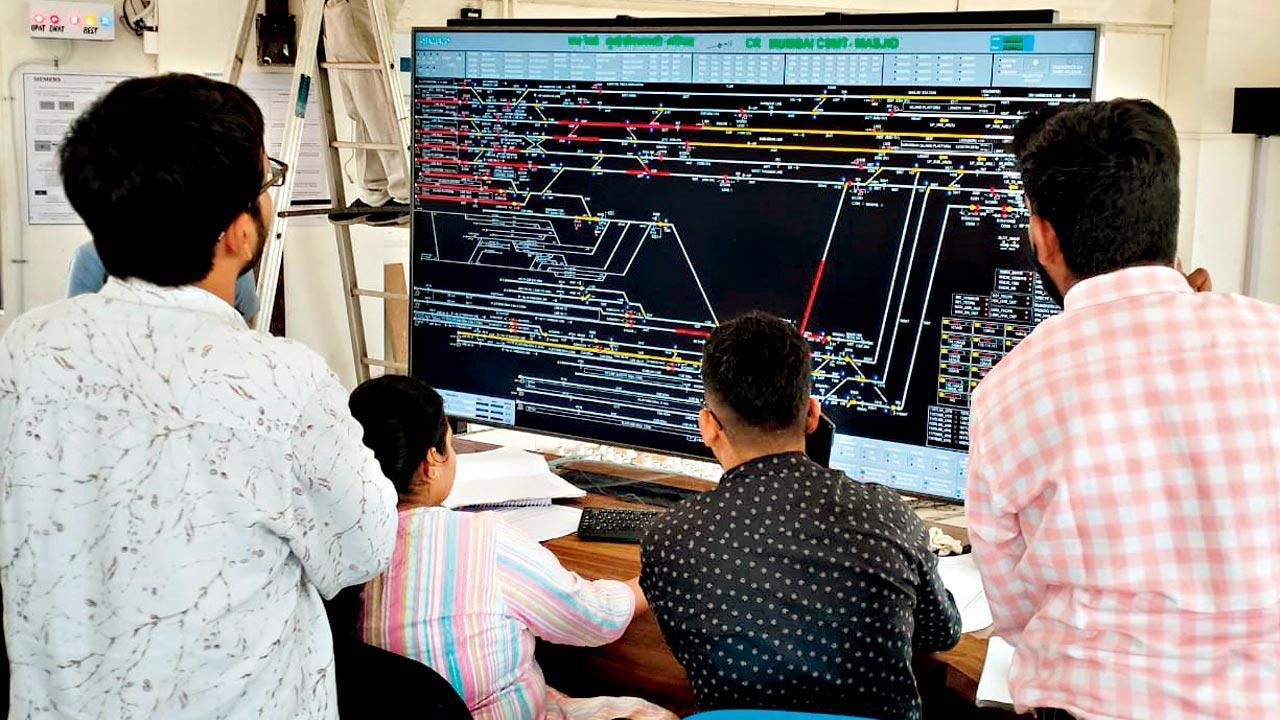CR has special approval from the Railway Board to skip the 30-second safety gag as it proved unsuitable for suburban, long distance trains

The control room at CSTM is now running on an electronic interlocking system aided by Digital Axle Counters
Central Railway in Mumbai is finally free of the safety gag that restricted train speeds at CSMT station and had been delaying trains on the entire network every single day since the upgraded signalling system was installed in early June. Central Railway in Mumbai are finally off the strict rule that restricted closer movement of trains under the new electronic interlocking system after the Railway Board in the weekend sanctioned a “special approval” as a pioneering solution for dense traffic using the advanced system of Digital Axle Counters.
ADVERTISEMENT
The advanced system of Digital Axle Counters to be used is a critical track monitoring system that senses train movement over a detection point on tracks by counting the passing axles with the use of microcontrollers. The system then transmits the counts to a second unit, matching it and clearing the section. The DACs also enable real-time communication between trains and the control room.
Earlier in June, CSMT got a modern electronic interlocking system after a 36-hour block, which enhanced safety and efficiency by replacing traditional mechanical interlocking systems called Route Relay Interlocking (RRI) with an advanced computerised control. The Indian Railways had begun introducing the EI system in 2021.
However, after the new system was installed, trains had been slowed down on the entire system due to the restriction, detaining and delaying trains. Earlier, trains could move once the preceding train cleared just 70 metres from the crossover point. As per the new rule, it mandated trains to travel an additional 250 metres before the following train could proceed. This means the yellow signal (proceed with caution) could be given only after the preceding train was about 320 metres away. Thus, in addition to the caution orders and speed limits at CSMT, all outstation mail/express trains arriving at CSMT platforms 8-18 were delayed. As a cascading effect, this delay was also felt by the mainline suburban system. The harbour line, being a separate corridor, was not affected.
The CR had requested relaxation of restriction norms for CSMT highlighting the fact that it was a terminating station and that all trains naturally slowed down and passed at lower speeds, which was given approval on Saturday and the system updated on Sunday. The DAC was part of the upgraded signaling system, but it is for the first time it is being used to manage dense traffic at CSMT. On Monday, suburban trains did not experience any delays.
“The newly installed signaling at CSMT has been successfully upgraded by Central Railway with Railway Board's special approval. This is a pioneering solution for dense traffic using Digital Axle Counters. This will reduce the delays and improve punctuality,” a CR spokesperson said.
 Subscribe today by clicking the link and stay updated with the latest news!" Click here!
Subscribe today by clicking the link and stay updated with the latest news!" Click here!







